第58章 NOTES(5)
Martinus Scriblerus: a reference to Memoirs of Martinus Scriblerus written principally by John Arbuthnot, and published in 1741. The purpose of the papers is given by Warburton and Spence in the following extracts quoted from the Preface to the Memoirs of the Extraordinary Life, Works and Discoveries of Martinus Scriblerus in Elwin and Courthope's edition of Pope's works, vol. x, p. 273:--"Mr. Pope, Dr. Arbuthnot, and Dr. Swift, in conjunction, formed the project of a satire on the abuses of human learning; and to make it better received, proposed to execute it in the manner of Cervantes (the original author of this species of satire) under a continued narrative of feigned adventures. They had observed that those abuses still kept their ground against all that the ablest and gravest authors could say to discredit them; they concluded, therefore, the force of ridicule was wanting to quicken their disgrace; and ridicule was here in its place, when the abuses had been already detected by sober reasoning; and truth in no danger to suffer by the premature use of so powerful an instrument.""The design of this work, as stated by Pope himself, is to ridicule all the false tastes in learning under the character of a man of capacity enough, that had dipped into every art and science, but injudiciously in each. It was begun by a club of some of the greatest wits of the age--Lord Oxford, the Bishop of Rochester, Pope, Congreve, Swift, Arbuthnot, and others. Gay often held the pen; and Addison liked it very well, and was not disinclined to come into it."[108]
accounted for the operation of the meat-jack: from the paper "To the learned inquisitor into nature, Martinus Scriblerus: the society of free thinkers greeting." Elwin and Courthope, Pope's works, vol. ?, p. 332.
[109]
The remainder of the essay endeavors to meet the charge of materialism. The following is the conclusion:--"In itself it is of little moment whether we express the phaenomena of matter in terms of spirit; or the phaenomena of spirit in terms of matter: matter may be regarded as a form of thought, thought may be regarded as a property of matter--each statement has a certain relative truth. But with a view to the progress of science, the materialistic terminology is in every way to be preferred. For it connects thought with the other phaenomena of the universe, and suggests inquiry into the nature of those physical conditions, or concomitants of thought, which are more or less accessible to us, and a knowledge of which may, in future, help us to exercise the same kind of control over the world of thought, as we already possess in respect of the material world; whereas, the alternative, or spiritualistic, terminology is utterly barren, and leads to nothing but obscurity and confusion of ideas.
"Thus there can be little doubt, that the further science advances, the more extensively and consistently will all the phaenomena of Nature be represented by materialistic formulae and symbols. But the man of science, who, forgetting the limits of philosophical inquiry, slides from these formulae and symbols into what is commonly understood by materialism, seems to me to place himself on a level with the mathematician, who should mistake the x's and y's with which he works his problems, for real entities--and with this further disadvantage, as compared with the mathematician, that the blunders of the latter are of no practical consequence, while the errors of systematic materialism may paralyze the energies and destroy the beauty of a life."ON CORAL AND CORAL REEFS (1870)
[110]
On Coral and Coral Reefs: from Critiques and Addresses. The essay was published in 1870.
[111]
Sic et curalium: Thus also the coral, as soon as it touches the air turns hard. It was a soft plant under the water.
[112]
Boccone (1633-1704): a noted Sicilian naturalist.
[113]
Marsigli (1658-1730): an Italian soldier and naturalist. He wrote A Physical History of the Sea.
[114]